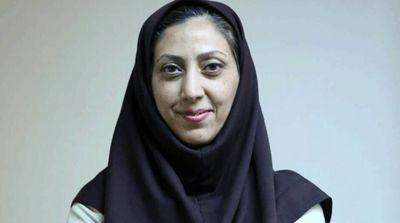Armenian film critic Sara Nalbandyan and Bulgarian filmmaker Zlatina Rousseva are the other members of the jury.
Hosseini has been working for the international section of Iran’s Documentary and Experimental Film Center (DEFC) since 2001 and is a translator of several film scripts.
She is a festival programmer for DEFC’s Cinéma Vérité international documentary film festival.
Hosseini was a member of the jury of the Millenium International Documentary Film Festival in Brussels, Belgium in 2019.
The festival, which will run through August 29, is also screening several documentaries by Iranian filmmakers in its various sections.
“Ujan Story”, a co-production between Iran and Armenia by Shahram Badakhshanmehr, was screened on Sunday, the opening day of the festival.
Shot in 2019 during and around the 5th edition of the Apricot Tree Ujan International Film Festival, the film is a docudrama about the village and specifically the Manvelyan family, which first hosted the director and his wife back in 2017 within the framework of the 3rd festival. Later on, the relationship grew to become a true friendship of families.
The film was showcased in the Special Screenings section of the festival.
“Kal Fatemeh” by Mehdi Zamanpur Kiasari is competing in the feature-length documentary category.
It is about Kal Fatemeh, a woman who lives on her own farm away from the village with her two sons. She runs a farm and rears cattle for a living, meeting many challenges. She grieves over her daughter’s situation, as she has had an unhappy past.
The section also features “Captain Daryaee” directed by Maziar Moshtaq-Gohari.
The film tells the story of Captain Daryaee, who is a traditional Baluchi fisherman, who voyages long-distance oceans to catch tuna.
He intends to sail again, but before returning from one of his long journeys, his wife has enforced her dowry (mahrieh) and has banned him from exiting the “marriage portion”.
Captain finds a way to take more time from the judge to collect the money and alongside 18 other sailors, most of whom are underage, leaves the Konarak shore to the Indian Ocean and Maldivian sea. He and his fellow sailors face numerous threats e.g. pirates and gunships, which search for illegal weapons.
“Balora” has been selected to be screened the short film competition.
In this documentary, director Abdolqader Khaledi and his crew are looking for people who may have information about a particular style of old and forgotten Kurdish singing called Balora.
In times when there were no means of mass communication, this form of singing was also used to communicate with other people in the mountains.
Balora has had aspects of romance, satire and humor, as well as a description of the death of a hero, the extent of which depends on the taste, imagination and skill of the poet, since there is a strong element of improvisation.
Performing it requires special skills because it requires the coordination of the fingers and proper breathing while singing. Through this form of singing, Kurdish women have cried out their desires, aspirations and sufferings, not in a quiet and secretive voice but in a loud and free voice in the mountains. This film reflects some of these cries.
Source:Tehran Times

